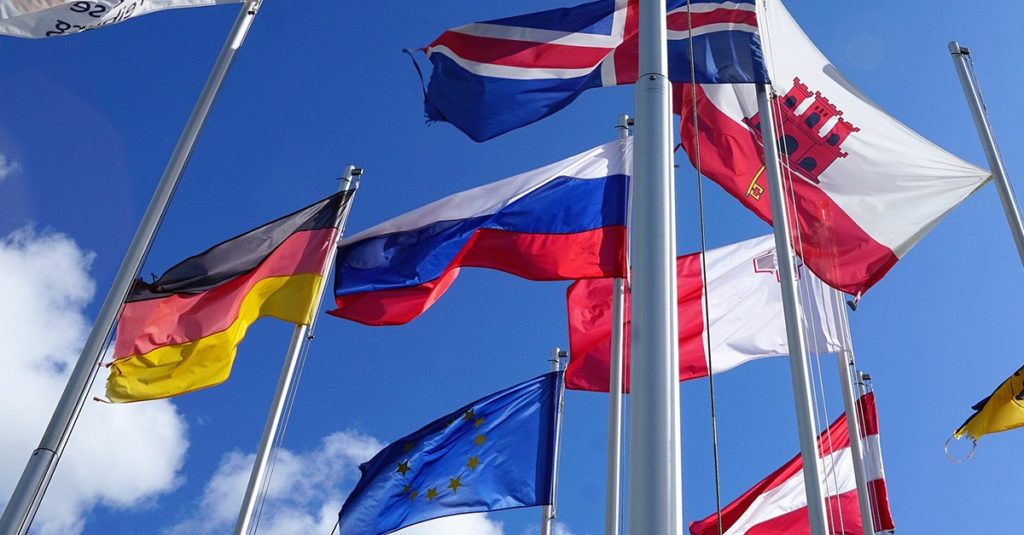5 Reasons to Translate your Website

English dominates the world. It’s the language of diplomacy (or lack thereof), business and Hollywood. 378 million people world-wide speak English as their mother tongue[1] and, according to the British Council, 1.75 billion people speak English at a useful level (whatever that may mean). So why should anyone bother having their website translated into anything other than English?
1. Immediate growth
A multilingual website is a quick and easy way of massively increasing your potential client base. In a Eurobarometer report in 2012, only 39%[2] of French people said they felt able to hold a conversation in English, in Spain the figure was 22%[3]. The remaining 61% and 78% of French and Spanish people are hardly likely to use an English language website at all. By offering a version in their native language you immediately open the doors to millions of new potential clients. Even those who know English to a high level will always be more comfortable navigating a website in their native tongue, and by putting them at their ease linguistically you show them that you care about their business.
2. Vast markets
The internet was an invention that came out of the English speaking world; Tim Berners-Lee made the World Wide Web open to the public in 1993 and initially English-speakers had the best access. As the number of websites exploded like a supernova, English-language content was at the forefront. Today, the percentage of English language sites is at about 53%[4]. The remaining 47% of Web space is divided up between all the other world languages. This leaves huge scope for increasing traffic from non-English speakers, especially as Internet access becomes ever more common on a global scale.
3. Culture vulture
Going multi-lingual shows you’re willing to go that extra mile for your clients’ comfort. Additionally, you may find that engaging a translating firm to manage the process means you not only translate your website, you localize it. Localization is the process of adapting a product both linguistically and culturally for a new country or region. This may sound superfluous, but there are subtle differences in the ways different countries handle things like structure, text or even colour.
4. Navigating linguistic minefields
So why not just follow the Internet’s lead, let customers use the Google ‘translate’ function and have done with it? Firstly, entrusting your website to Google translate is like putting a chimpanzee in charge of a fireworks factory: ill-advised and likely to blow up in spectacular fashion. Here’s an example from our own website: „Im Laufe der Jahre haben wir uns ein umfangreiches Hintergrundwissen angeeignet – von A wie Aktiengesetz bis Z wie zivilrechtliche Streitigkeiten.“ And here’s what Google translate makes of it: „Over the years, we have acquired a wealth of background knowledge – from A to Akt, to Z to civil litigation.” Not exactly confidence-inspiring.
Some countries have regulations governing commercial translations. In Quebec, Canada, for example, the French Language Charter[5] requires websites to be available in English and French. Non-compliance means that a website can simply be taken off the net. Using a translation company ensures a high quality translation from people who know their way around the language, the culture and the regulations that might govern it.
5. International Search Engine Optimisation
Your translation service provider can help you optimise your website for international markets. In addition to translate the contents of your site, aspects such as URLs, local links and key words also need to be considered. To make your website a local success globally, it is definitely worth involving experts.
Translation adds value
In summary, having a multi-lingual website is a simple way of promoting a business. Making the effort to bridge the language gap is easy and pays off. It shows that you respect and care about your customers and also makes your website easier to find.
[1] https://www.statista.com/statistics/266808/the-most-spoken-languages-worldwide/
[2] http://ec.europa.eu/public_opinion/archives/ebs/ebs_386_fact_fr_en.pdf
[3] http://ec.europa.eu/public_opinion/archives/ebs/ebs_386_fact_es_en.pdf
[4] https://w3techs.com/technologies/overview/content_language/all
[5] https://nationalpost.com/news/canada/retailers-forced-to-block-english-only-websites-in-quebec-or-face-sanctions-from-language-police